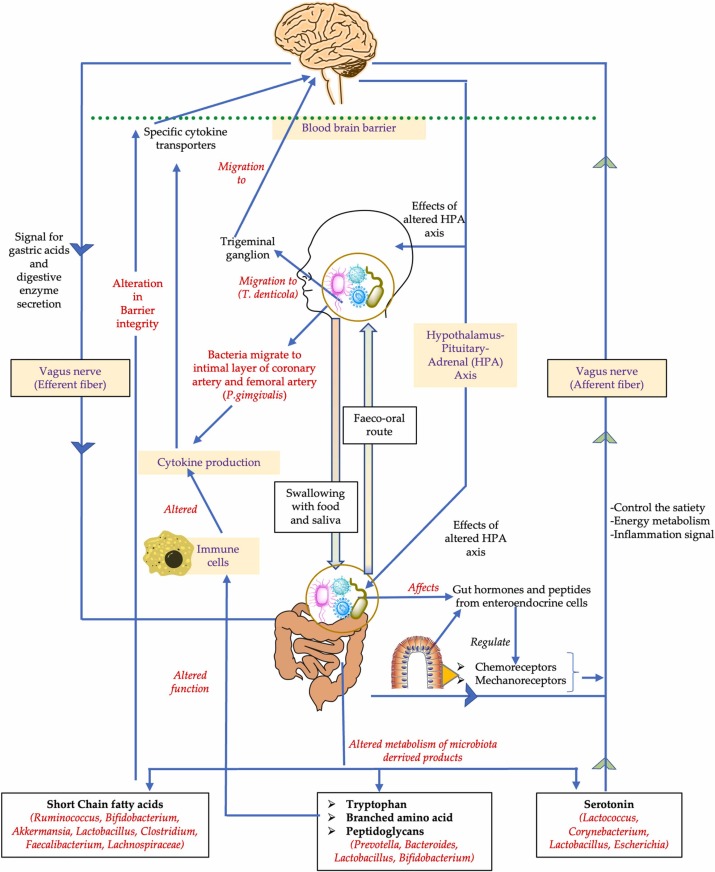
### How Pregnancy and Mental Health Are Reflected in the Mouth: A Novel Study Highlights Oral Bacteria as Possible Indicators of Mental Health
Pregnancy represents both a wondrous and demanding time in a woman’s journey, characterized by significant physical, hormonal, and emotional transformations. While the relationship between gut microbiota and mental well-being has been thoroughly examined, an innovative study published in *BMJ Mental Health* reveals new insights into a frequently overlooked area: the mouth. Researchers from the Michigan Prenatal Stress Study have discovered compelling links between the diversity and composition of oral bacteria in pregnant women and their levels of stress, anxiety, depression, and PTSD symptoms. These discoveries may lead to new, non-invasive approaches for monitoring maternal mental health during pregnancy.
—
### Key Discoveries: Oral Microbiome as a Reflection of Mental Health
The study assessed saliva samples and mental health evaluations from 224 pregnant women in their second trimester, finding that the makeup of their oral microbiome—the varied collection of bacteria in their mouths—differs significantly with psychological health. Researchers highlighted the following notable patterns:
– **Increased bacterial diversity in women with anxiety or depression:** Women facing these mental health challenges exhibited “alpha diversity,” characterized by a high presence of many bacterial species that were fairly evenly distributed.
– **Distinct bacterial signatures for PTSD:** Individuals with PTSD symptoms displayed a notably different oral bacterial makeup when compared to those without PTSD, suggesting a possible biological marker for this particular mental health issue.
– **Bacterial correlations with specific mental health conditions:**
– **Recent life stress** was associated with higher levels of *Proteobacteria*.
– **Depression** was related to increased *Spirochaetes* bacteria.
– **Concurrent anxiety and depression** were linked to elevated *Firmicutes* bacteria and *Dialister* species.
Remarkably, these observations differ substantially from patterns seen in the gut microbiome, indicating that the mouth may provide unique perspectives on mental health.
—
### Factors Affecting the Microbiome-Mental Health Link
The study also examined lifestyle and social factors that might influence variations in oral bacteria. Smoking and oral health emerged as significant contributors, with cigarette smoking accounting for 7.2% of variations in the oral microbiome and dental issues contributing 3.1%. Other factors included:
– **Intimate partner violence:** 4.1% variance in the oral microbiome.
– **Unplanned pregnancies:** 2% variance.
These figures highlight the interconnected nature of physical, emotional, and environmental influences on maternal health.
—
### Implications for Monitoring and Supporting Maternal Mental Health
This research opens up exciting new avenues for enhancing mental health support for pregnant women. Given that mental health struggles often rise or worsen during pregnancy—a time when traditional treatments like specific medications might threaten fetal safety—early and non-invasive diagnostic options could be transformative.
#### Possible Applications:
1. **Biological markers for early identification:** By pinpointing bacterial patterns linked to certain mental health issues, saliva samples could act as accessible biomarkers for diagnosing conditions such as anxiety, depression, or PTSD.
2. **Preventive oral care strategies:** The researchers suggest exploring how enhancing oral health—through dietary modifications, improved dental care, or focused probiotics—could mitigate stress or other pregnancy-related symptoms.
3. **Customized healthcare strategies:** A deeper understanding of the microbiome-mental health relationship could assist healthcare practitioners in personalizing interventions based on individual women’s circumstances.
The promise of such applications is particularly compelling due to the relative ease of studying the oral microbiome compared to gut bacteria, which require more invasive methods to access.
—
### Study Limitations and Suggestions for Future Research
Although the findings are encouraging, the authors also recognize several limitations:
– **Single data collection point:** Saliva samples and mental health evaluations were collected only once during pregnancy, restricting the ability to observe how changes in bacteria correlated with mental health over time.
– **Missing diet and weight data:** These elements, known to impact oral microbiota, were not adequately factored into the study.
– **Reliance on self-reported mental health data:** While useful, self-reported information may lack objective accuracy, potentially influencing the results.
Furthermore, the study did not investigate how microbes in the lower gut or ongoing oral health issues might relate to the findings. Future research directed at bridging these gaps could clarify whether alterations in oral bacteria precede mental health symptoms—potentially providing opportunities for earlier intervention.
—
### The Larger Context: Why These Findings Are Significant
Pregnancy is a period of substantial vulnerability, and prioritizing maternal well-being is crucial—not only for mothers but also for the enduring health of their children. By offering new insights into the relationship between oral health and mental well-being, this study advocates for a more holistic approach to prenatal care.
It also reminds us that the microbiome presents a captivating frontier in health science, with each bacterial community—